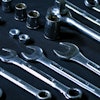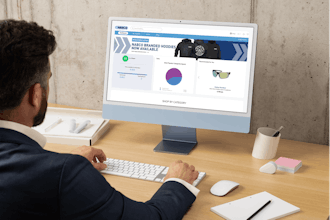
A better customer experience equals happier buyers. That leads to more referrals, greater wallet share and sustainable, profitable growth.
But if you don’t invest in an omnichannel approach to improve the experience you’re offering, your customers might switch to another supplier.
What do buyers want?
According to McKinsey, their top demands include:
- Consistent experience
- Ability to buy on multiple channels
- Personalization based on purchase stage or type
- Visibility into product availability online
- Always-on customer service
It will soon be table stakes for distributors to offer these. B2B buyers want choice. They want to move between traditional, remote and digital self-serve methods of shopping and purchasing, depending on where they’re at in their buying journey.
An omnichannel approach gives buyers a seamless shopping and buying experience across channels. In some cases, McKinsey says that can be 10 or more channels. That consistency also benefits you. No matter how they interact with you, everyone on your team gets the same information about that buyer — buyers don’t have to repeat themselves, and sellers can make the most of their time.
What will it take to provide that omnichannel experience?
1. Integrated Systems
Providing multiple channels isn’t enough — customers want integration across channels so they can jump from one to another. For example, they want to be able to place an order through a sales rep and check the status of that order online. Or call up a customer service rep, who can easily pull up those details without repeating the past, and then hang up and send the PO in via email.
Omnichannel connects all sales channels so systems can talk to each other, keeping data updated in real time. Omnichannel revolves around interconnectivity, and that requires the right technology to bring it all together.
2. E-Commerce Functionality
Despite distributors’ banking on great customer service, the truth is that B2B businesses maintain an average customer service score of around 50%, according to McKinsey, lower than the typical B2C business. One reason for this discrepancy today is the tendency of B2B organizations to have less advanced e-commerce capabilities.
McKinsey also notes that roughly two-thirds of customers prefer remote (video and phone) and self-service (e-commerce) interactions above in-person visits.
E-Commerce – whether a customer purchases through the website or not – supports customers’ desire to do independent research. Make sure they can search for and bring up the products they need, view their pricing, compare features, examine technical specs, view safety information, browse images and videos, and understand product applications in their industries.
3. Consistency Across Channels
You need the right tools to help your teams see everything about a buyer, including:
- Website activity
- Order history
- Returns
- Upcoming reorders
- Order status
- Conversations with reps
This grants customers a consistent experience and reduces frustration. Integrated systems fuel consistency, but you need the right technology to enable that seamless experience.
Why Customers Stay
You’ve heard it before: a box of donuts and visits just to call in reorders are not enough anymore. A combination of a generational shift, consumer expectations and technology improvements have made it more likely that customers will go elsewhere today if you can’t meet their needs. Customers must be able to purchase from any channel and get a consistent experience no matter where they shop. This requires a shift in sales model for many distributors to one that supports a hybrid approach. It also requires the right technology to support it, online and off.
Given the possibility for buyers to wave goodbye if you don’t meet their expectations, it’s more important than ever for distributors to provide a seamless, omnichannel experience that puts the customer at the forefront.
Jon Byrd is an enterprise sales executive with Sikich.























